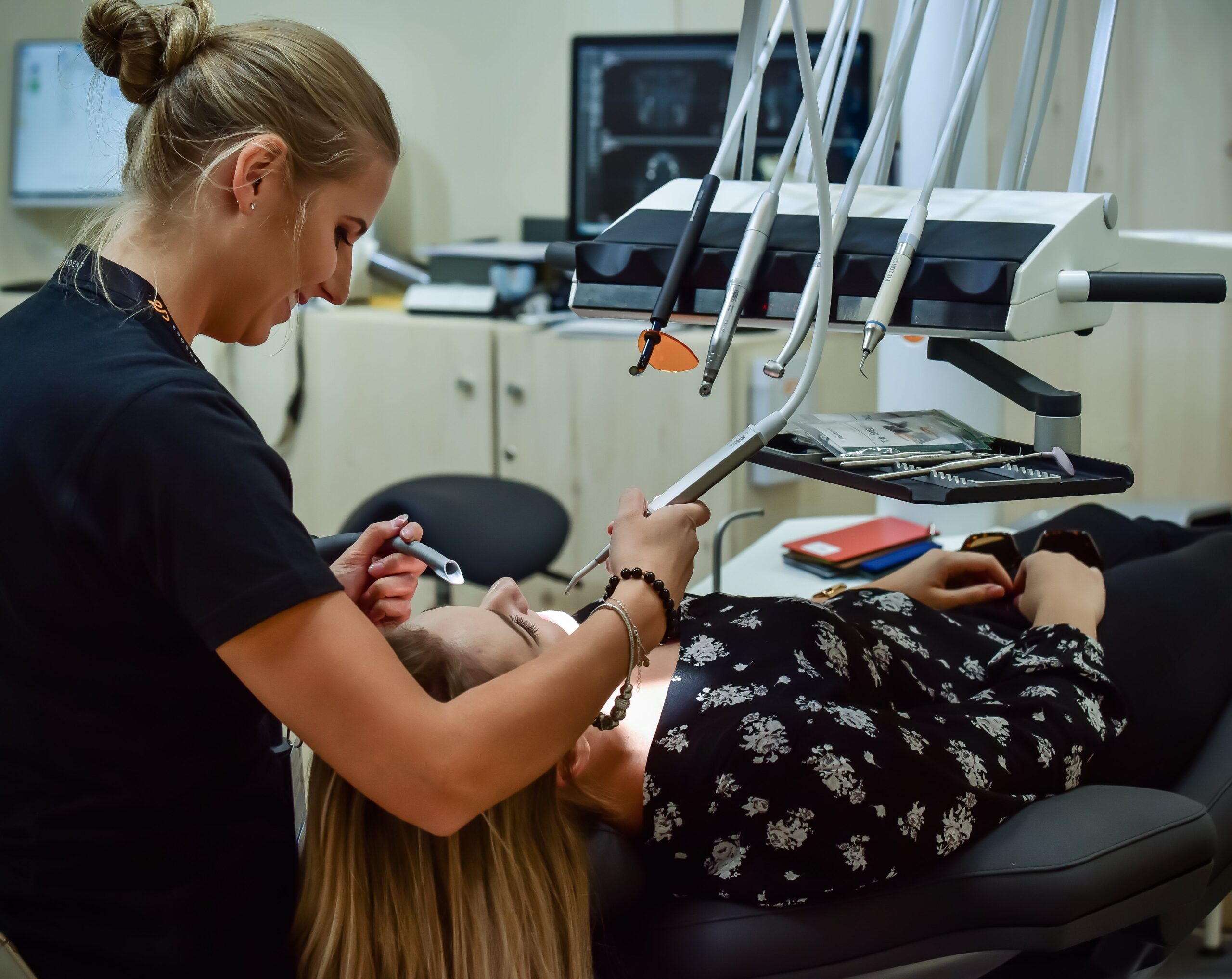The Road to Recovery: Post-Root Canal Care

Root canal treatment, also known as endodontic therapy, is a dental procedure designed to save and preserve a severely infected or damaged tooth. While the treatment itself is crucial for alleviating pain and preventing further oral health issues, what comes after the procedure is equally important. Proper post-root canal care is essential to ensure a smooth recovery and the long-term success of the treatment. In this comprehensive guide, we’ll explore what you can expect after a root canal and provide you with essential post-treatment care instructions to help you on the road to recovery.
Understanding Root Canal Treatment
Before delving into post-root canal care, let’s briefly review what root canal treatment involves. Root canal therapy becomes necessary when the pulp, the innermost part of the tooth, becomes infected or inflamed due to deep decay, a cracked tooth, or trauma. The procedure aims to remove the infected pulp, clean and disinfect the root canals, and then seal the tooth to prevent further infection.
Root canal treatment has a reputation for being associated with discomfort and pain, but in reality, it is a relatively painless and highly effective procedure. Thanks to modern advancements in dentistry, patients often experience minimal discomfort during the procedure, and it is performed under local anaesthesia to ensure your comfort.
What to Expect Immediately After a Root Canal
After your root canal treatment is completed, you may experience some common post-procedure effects. These are normal and usually subside within a few days:
- Sensitivity: Your tooth may be sensitive to hot or cold temperatures for a short period. This sensitivity is temporary and should gradually improve.
- Discomfort: You may experience mild discomfort or tenderness around the treated tooth, especially if there was significant infection or inflammation before the procedure.
- Swelling: Some patients may notice minor swelling in the area around the treated tooth. This is a natural response to the procedure and should resolve on its own.
- Bruising: In rare cases, there may be slight bruising around the site of the treatment. This typically fades quickly.
- Medications: Your dentist may prescribe pain relievers or antibiotics to manage discomfort and prevent or treat any residual infection.
It’s essential to follow your dentist’s post-treatment instructions carefully to promote healing and minimise any potential complications.
Post-Root Canal Care Instructions
- Take Prescribed Medications: If your dentist has prescribed pain relievers or antibiotics, be sure to take them as directed. These medications can help manage discomfort and prevent infection.
- Practise Good Oral Hygiene: Maintaining excellent oral hygiene is crucial for a smooth recovery. Continue to brush your teeth gently, being careful around the treated tooth. Use a soft-bristle toothbrush and fluoride toothpaste. Avoid vigorous rinsing or spitting, especially in the first 24 hours.
- Avoid Hard or Sticky Foods: For a few days following the root canal, it’s advisable to avoid hard or sticky foods that could cause discomfort or damage to the treated tooth. Opt for soft, easy-to-chew foods instead.
- Cold Compress: If you experience swelling or discomfort, applying a cold compress to the outside of your cheek near the treated area can help reduce swelling and numb the area.
- Limit Physical Activity: While it’s essential to continue with your regular daily activities, avoid strenuous physical activity or heavy lifting for a day or two after the procedure. This can help reduce the risk of post-treatment complications.
- Stay Hydrated: Drinking plenty of water is essential for your overall well-being and can aid in the healing process. Staying hydrated can also help flush out any residual toxins or bacteria.
- Follow-Up Appointments: Attend any follow-up appointments scheduled with your dentist. These appointments allow your dentist to assess your progress and ensure that the treated tooth is healing as expected.
Potential Post-Root Canal Complications
While complications after a root canal are relatively rare, it’s essential to be aware of potential issues that may arise:
- Persistent Pain: Some mild discomfort or sensitivity is normal after a root canal, but if you experience severe or worsening pain, contact your dentist immediately. This could be a sign of a problem that requires attention.
- Swelling or Infection: If swelling or signs of infection, such as fever or pus discharge, persist or worsen, it’s crucial to consult your dentist promptly.
- Dislodged or Loose Filling: Occasionally, the filling or crown placed on the treated tooth may become dislodged or feel loose. If this occurs, contact your dentist to have it resecured.
- Cracked Tooth: In rare cases, a tooth can become weakened after a root canal and may crack or fracture. Contact your dentist if you notice any unusual sensations or changes in the treated tooth.
- Allergic Reactions: If you develop an allergic reaction to any medications prescribed after the root canal, inform your dentist immediately.
The Role of Restorations
In most cases, a tooth that has undergone root canal treatment will require a dental restoration to restore its strength and function fully. The type of restoration will depend on the location of the tooth and the extent of the damage. Common restorations include:
- Dental Crowns: A dental crown, often made from porcelain or ceramic, is custom-designed to fit over the treated tooth, providing strength and protection. Crowns are the most common restoration for posterior teeth.
- Inlays or Onlays: In some cases, when a full crown is not necessary, inlays or onlays may be used to repair the tooth’s biting surface. These restorations are made from materials like porcelain or composite resin.
- Filling Material: In some cases, particularly for front teeth, a composite resin filling may suffice to restore the tooth’s appearance and function.
Your dentist will discuss the most suitable restoration option for your specific case and ensure that it blends seamlessly with your natural teeth.
Long-Term Success and Maintenance
Proper post-root canal care is essential not only for immediate recovery but also for the long-term success of your treatment. Once the tooth has fully healed and a permanent restoration is in place, it’s crucial to continue practising good oral hygiene and attending regular dental check-ups. Here are some long-term considerations:
- Routine Dental Check-Ups: Continue with your regular dental check-ups, typically every six months. These appointments allow your dentist to monitor the treated tooth’s condition and overall oral health.
- Oral Hygiene: Maintain a diligent oral hygiene routine that includes brushing, flossing, and rinsing with an antimicrobial mouthwash. Pay particular attention to the treated tooth to prevent future issues.
- Avoid Crunching Hard Objects: Be cautious when eating hard or crunchy foods, as excessive force can lead to damage or fracture of the restored tooth.
- Protect Against Teeth Grinding: If you grind your teeth at night (bruxism), discuss the use of a night guard with your dentist to protect your teeth from excessive wear and damage.
- Address Any Concerns: If you experience any issues with the treated tooth, such as discomfort, sensitivity, or changes in its appearance, don’t hesitate to contact your dentist for an evaluation.
Root canal treatment is a highly effective procedure for saving a severely infected or damaged tooth. While post-root canal care is an essential aspect of the overall treatment process, it doesn’t have to be daunting. By following your dentist’s instructions for care and attending regular check-ups, you can ensure a smooth recovery and enjoy the long-term benefits of a pain-free, healthy smile.
If you have any concerns or questions about your post-root canal care or if you experience unusual symptoms, reach out to your dentist promptly. With the right guidance and care, you’ll be on the road to recovery and enjoying the full functionality of your treated tooth in no time.




